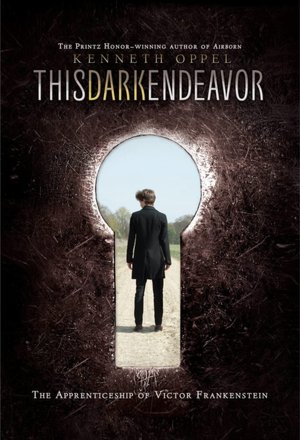The Reader’s Workshop
Course Guidelines
5th Period – Q3 – 2008-09
Course Guidelines
5th Period – Q3 – 2008-09
The Reader’s Workshop is designed for individuals who love to read but never seem to have enough time to do it. By participating appropriately in a structured reading environment each day, it is a goal of the course that you will improve your reading rate, comprehension skills, and ability to effectively articulate responses to what you read in written, oral, and creative formats.
To earn credit in this course, you will need to:
1. Fulfill the Shabazz attendance requirement (5th period class / no more than 6 absences; 3 tardies = 1 absence). Students are expected to have their books with them each day. No reading material = absence.
2. Spend every class period reading silently or completing response projects. Appropriate use of class time throughout the entire quarter is a requirement to earn credit. Students not following in-class reading/work guidelines will earn absences.
3. Read and finish three books by due dates for 1/4 English credit. You may choose your own titles at an appropriate reading level, but try to move beyond what you always read by selecting one book outside of your usual genre or one that will significantly challenge you.
WRITING/PROJECT COMPONENTS
4. Turn in TWO response papers/projects for each book you read. Written responses must be AT LEAST ONE, FULL, TYPED PAGE in length and must focus on your own thoughts about the book or on questions/prompts suggested in class handouts. If you are quoting material from your book, your analysis section must equal one full page in length. Consult the response suggestion list for ideas. No more than one visual response will be accepted for each book.
12 pt. font / double-spaced / 1 inch margins max.
ALL WRITTEN RESPONSES MUST BE TYPED
and THOROUGHLY EDITED.
Be sure to save your work in your Shabazz server file,
on a portable drive, or in an online archive.
and THOROUGHLY EDITED.
Be sure to save your work in your Shabazz server file,
on a portable drive, or in an online archive.
NOTE: PLOT SUMMARIES ARE NOT ACCEPTABLE RESPONSES. A very brief explanation of plot elements (1 or 2 sentences) may be used to clarify and support your own response points; however, your analysis must carry the weight of your response papers. Also, any assignments completed below a “developing” level may need to be revised for credit.
5. Participate in discussions, book share talks, writing conferences, and other library activities when requested. All students may be asked to work with tutors on writing mechanics.
6. Meet all deadlines and revise any response papers for content or mechanics if requested to do so.
Book Choices: You may use books from English classrooms, the LMC, home/friends, or from the public library. I only ask that you check out all books borrowed from our classroom by noting your selections on the Book Check-Out Form on the tall gray cabinet. Each student in this class will have a different reading rate, ability, and area of interest. For that reason, books will be of varied length and difficulty. I expect you to choose books that meet or challenge your own reading level and interest. I reserve the right to request that a student change a book believed to be too easy, too short, or inappropriate for the classroom. Students may read books they have read before, but must re-read them thoroughly. Also, if you have a very heavy reading load for several classes, please tell me as soon as possible for strategies on balancing your responsibilities.
Note: If you are reading a single longer book that equals more than one total text, you must still complete the same number of responses for the appropriate portion of the book by the deadlines.
Reading & Work Environment: Most students require a silent setting for full concentration on their reading and analysis writing. For that reason, it is important that the classroom environment be quiet for reading. (See Requirement #2.) No talking will be allowed in the room once class has started on reading days. Only students who follow this guideline will receive credit for being in attendance. Students may also use the computers in the library to work on typing their responses. Walkman, Discman, IPod (or other MP3 player ) use during reading days is acceptable if the music cannot be heard by others. Cell phone sources for music ARE NOT ALLOWED. Students dozing at any time during the class hour will automatically be marked absent without warning. Consider this syllabus your warning.
Assignment Due Dates: Follow this progress schedule to be eligible to earn credit in the class:
by February 10 (T) -- Finish Book #1 and responses
February 11 (W) – Book Share Day
by February 24 (T) -- Finish Book #2 and responses
February 25 (W) – Book Share Day
by March 13 (F)-- Finish Book #3 and responses
March 17 (T) -- Book Share Day
March 18-20 – Library Activity
NOTE: GUIDELINES REGARDING LATE WORK
The schedule above is designed to allow for plenty of time to complete books and response writings. Students will have a short grace period following each major assignment due date to allow for unanticipated emergencies and time constraints. Missing a due date may also generate a contact home (either email or phone call) to update families of outstanding assignment obligations and determine if additional support is needed. If students miss the grace period deadline, they might lose eligibility for class credit. Grace period length will vary by class and assignment. Students must pay attention to each assignment’s dates. (The only exceptions to this guideline may occur for students with documented special education writing concerns. Those students must have a dialogue with me about those concerns in the first week of the course. Permission for extensions must be in line with a student’s IEP and requested in advance of the due dates.) Students are expected to participate in sharing sessions and may not use those days for writing or project work time.
Attendance:
• The Shabazz attendance policy will be strictly enforced in this class. Students are no longer eligible for credit after their 6th absence. Remember that all tardies are accounted for (3 tardies = 1 absence). Students who arrive to class more than 15 minutes late will earn an absence for that class period. Note: Students who sleep during class time or violate other work guidelines are not considered to be in attendance. No warnings will be given. Consider this handout your warning about attendance, dozing, or general lazing around. If students complete all of the assignment requirements for the course early, they still must meet the attendance requirements. They may use the class time to work on assignments due for other instructors or to read purely for their own enjoyment.
Plagiarism:
• When a student uses information (words, paper organization, and/or central ideas) from another source without proper citation it is called plagiarism. “You are therefore cautioned (1) against using, word for word, without acknowledgment, phrases, sentences, paragraphs, etc., from the printed [or online material] of others; (2) against using with only slight changes the materials of another; and (3) against using the general plan, the main headings, or a rewritten form of someone else's material. These cautions apply to the work of other students as well as to the published work of professional writers [either in print or online].” If it is discovered that students “borrow” text from other book reviews, essays, papers, or classmates, it will be considered direct plagiarism and intellectual theft. Such action is in violation of the MMSD Student Code of Conduct and basic guidelines of this course. Students who choose to take such inappropriate action will be required to conference with Denise (and possibly with Sally and parents) and may receive a No Credit grade/evaluation in the course.
Policy Source: Weiser, Irwin. “Academic Honesty Statement.” Purdue OWL: Avoiding Plagiarism. Online. http://owl.english.purdue.edu/owl/resource
Book Return:
• Students must return all books checked out for class to be eligible for credit in any English class. If a book is lost, talk with your instructor about where you can find a replacement copy, arrange for an alternative replacement, or provide payment for the text.







